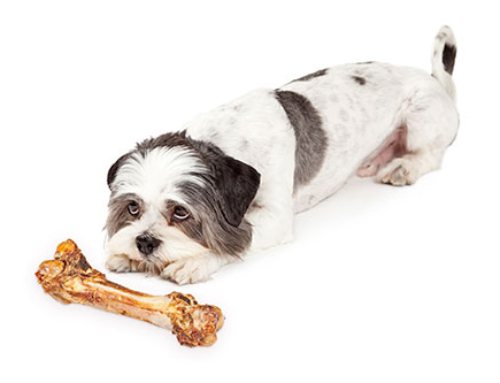Some over-the-counter medications for humans can be deadly to your pets so before giving any medication to your pet, unless prescribed for them, be sure to consult with a veterinarian. Here are some home remedies that can help you avoid a trip to the vet!
ALLERGIES/SKIN
1. Diphenhydramine.
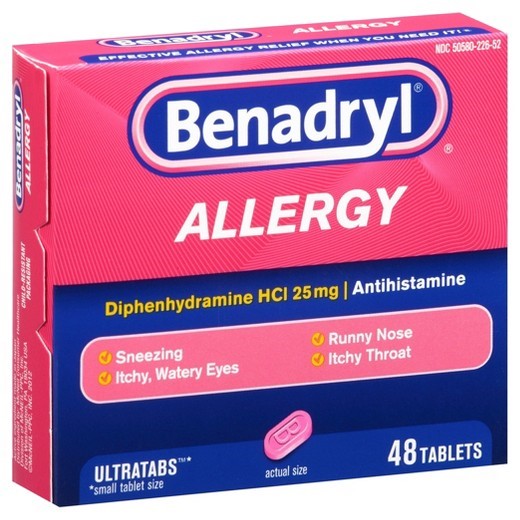
Bee stings, allergies, hives and itching can often be alleviated with Diphenhydramine, brand name Benadryl for both cats and dogs. The dose is 1 milligram per pound. A 10 pound dog would recieve 10 milligrams.
2. Chamomile tea
 Strong chamomile tea for a number of skin ailments in pets because of its natural disinfectant effect of the plant. A soothing solution, chamomile calms minor skin irritations by killing yeast and bacteria complicating the lesions with their presence—without the harshness that may reduce the body’s own “happy” bugs. Make a strong chamomile tea, pour it into a spray bottle and let it chill in the fridge. Then spray it on red and raw skin liberally for an immediately soothing effect. Add a tiny dash of distilled white vinegar to the above cooled chamomile tea for a low-cost ear cleansing solution almost on par with the chlorhexidine rinses you would purchase at your vet’s.
Strong chamomile tea for a number of skin ailments in pets because of its natural disinfectant effect of the plant. A soothing solution, chamomile calms minor skin irritations by killing yeast and bacteria complicating the lesions with their presence—without the harshness that may reduce the body’s own “happy” bugs. Make a strong chamomile tea, pour it into a spray bottle and let it chill in the fridge. Then spray it on red and raw skin liberally for an immediately soothing effect. Add a tiny dash of distilled white vinegar to the above cooled chamomile tea for a low-cost ear cleansing solution almost on par with the chlorhexidine rinses you would purchase at your vet’s.
3. Oatmeal cereal
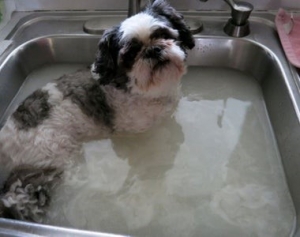
If you’ve got an itchy pet willing to hang out in a bathtub, this is for you. Finely ground oatmeal can be stirred into a bath of warm water for a super-soothing soak. Pets with skin allergies, infections, and any other itchy disease gain immediate relief with this approach. Many dogs even come to love this tactic for its in-tub lappability
WOUNDS/SOFT TISSUE INJURY OR LAMENESS
If your pet comes up lame after a walk and or has any joint swelling.
4. Epsom salts
 When pet wounds and swellings inevitably rear their ugly heads, Epsom salts are almost always helpful for optimal home care. Epsom salt soaks and hot packs are a great adjunct to antibiotics and surgical attention. Sometimes they can even do the job on their own
When pet wounds and swellings inevitably rear their ugly heads, Epsom salts are almost always helpful for optimal home care. Epsom salt soaks and hot packs are a great adjunct to antibiotics and surgical attention. Sometimes they can even do the job on their own
5. Buffered Aspirin
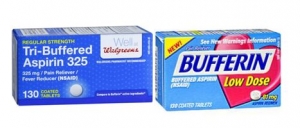 Buffered aspirin for dogs NOT CATS is an aspirin that’s coated with a substance that can neutralize acid and is meant to provide pain relief. Aspirin is also known as acetylsalicylic acid, and is used as an analgesic and as an anti-inflammatory agent. Buffered aspirin can be administered safely to dogs NOT CATS of all ages and breeds and helps to increase mobility and reduce pain, lameness and inflammation in arthritic dogs. It’s an over the counter drug that provides relief from pain and inflammation caused by injury, surgery, arthritis or joint disease. Baby aspirin is 80 mg and adult aspirin is 325mg. The recommended dosage is 5 to 10 mg per pound of the dog’s body weight given with a meal every 12 hours. A 10 pound dog would receive 50 to 100 mg of aspirin or 1/2 to 1 baby aspirin.
Buffered aspirin for dogs NOT CATS is an aspirin that’s coated with a substance that can neutralize acid and is meant to provide pain relief. Aspirin is also known as acetylsalicylic acid, and is used as an analgesic and as an anti-inflammatory agent. Buffered aspirin can be administered safely to dogs NOT CATS of all ages and breeds and helps to increase mobility and reduce pain, lameness and inflammation in arthritic dogs. It’s an over the counter drug that provides relief from pain and inflammation caused by injury, surgery, arthritis or joint disease. Baby aspirin is 80 mg and adult aspirin is 325mg. The recommended dosage is 5 to 10 mg per pound of the dog’s body weight given with a meal every 12 hours. A 10 pound dog would receive 50 to 100 mg of aspirin or 1/2 to 1 baby aspirin.
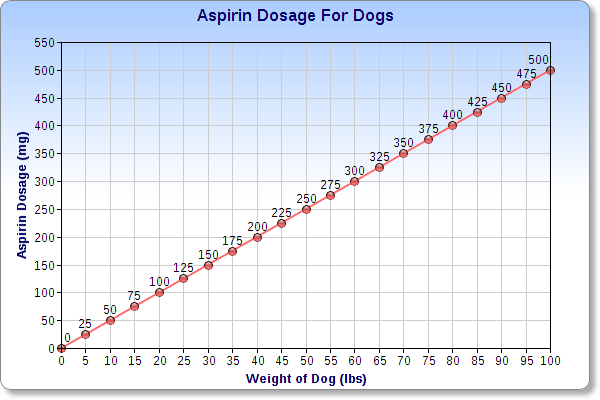
EMERGENCY/STOMACH
6. Hydrogen Peroxide is commonly used to induce vomiting in dogs.
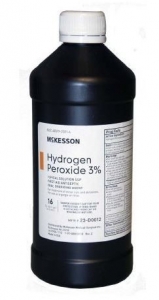
If your pet eats something it shouldn’t i.e your other dogs medication or something worse, you can use hydrogen peroxide to make them vomit it up. The dose of 3% hydrogen peroxide is 1 teaspoon or 5 ml per 10 lbs of body weight. Give it, walk the dog around or massage their abdomen to mix it around in the belly and within 20 minutes, they should vomit. Ok to repeat once.
7. Famotidine (Pepcid) can be used in dogs to reduce stomach acids for vomiting
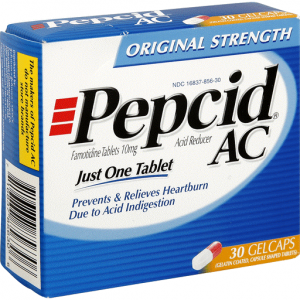 The dosage most commonly used is 0.25 to 0.5 mg per pound (0.5 to 1.0 mg/kg) every 12 to 24hours. A 20-pound dog should get about 5 to 10 mg (total dose) once to twice daily. This is an oral medication, which can be found at most pharmacies in the antacid section. Pepcid (Famotidine) does not require a prescription. Also, not feeding your pet any food (water is ok) for 24 hours can resolve a lot of cases of vomiting and diarrhea!
The dosage most commonly used is 0.25 to 0.5 mg per pound (0.5 to 1.0 mg/kg) every 12 to 24hours. A 20-pound dog should get about 5 to 10 mg (total dose) once to twice daily. This is an oral medication, which can be found at most pharmacies in the antacid section. Pepcid (Famotidine) does not require a prescription. Also, not feeding your pet any food (water is ok) for 24 hours can resolve a lot of cases of vomiting and diarrhea!
8. Canned pumpkin

For either easily constipated or diarrhea-prone dogs pumpkin can work wonders––though not always. It’s a do-no-harm approach that anyone can try, but never let an animal suffer for more than a day or two of mild symptoms before you talk to your vet.
Homemade short term recipe for dogs/cats
PLEASE NOTE: This recipe should be fed for not more than 2 months.
Standard Pet Formula – adequate for healthy dogs and cats over 6 months of age
1 pound fresh boneless skinless chicken breast
2 and 2/3 cup cooked white rice
1 Tablespoon safflower oil
1/4 tsp Morton’s lite salt
1/4 tsp iodinated salt
3 grams of calcium carbonate without vitamin D (regular Tums – check size)
1 Centrum adult multivitamin-mineral supplement (no special senior, ocular, women’;s or
other versions)
1/4 tsp taurine powder (or 500 mg tablet) (taurine is optional for dogs – essential for
cats)
Sauté chopped chicken breast in oil until thoroughly cooked. Add rice and salt.
Grind Tums (calcium carbonate), multi vitamin/mineral tab, and taurine supplement together. Add to cooled mixture. Store in refrigerator. Larger batches may be prepared in advance and stored in the freezer.
Nutritional profile
40% protein (Dry matter basis (DMB))
12% fat DMB
6% calcium DMB
4.3% phosphorus
1.4:1.0 calcium:phosphorus
Calories: 1046 kcal per batch or 1.12 kcal/gram
Batch size: 932 grams
To feed, calculate caloric needs and divide into twice daily feeding. One recipe batch should provide adequate intake for a 40-45 pound dog for 1 day. Adjust intake to maintain ideal body weight

